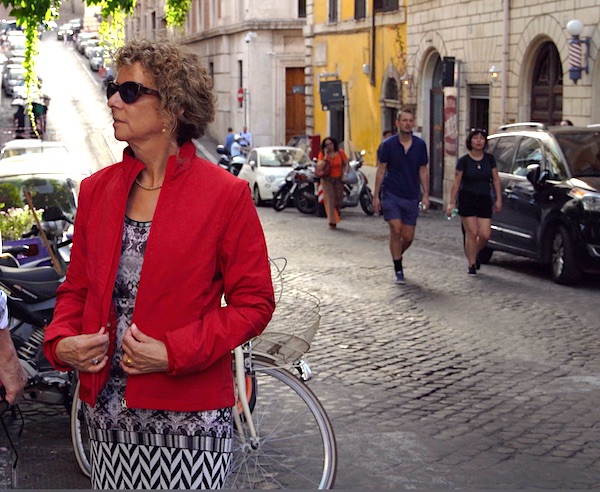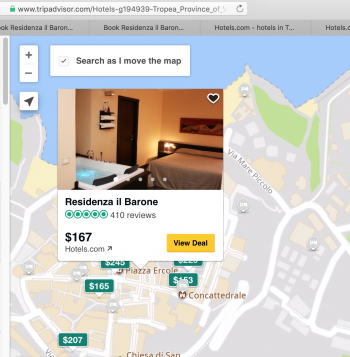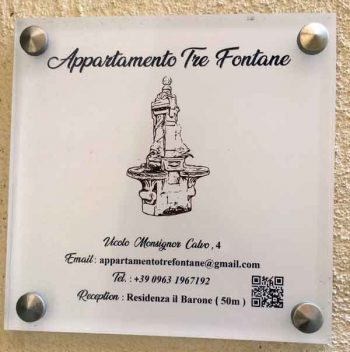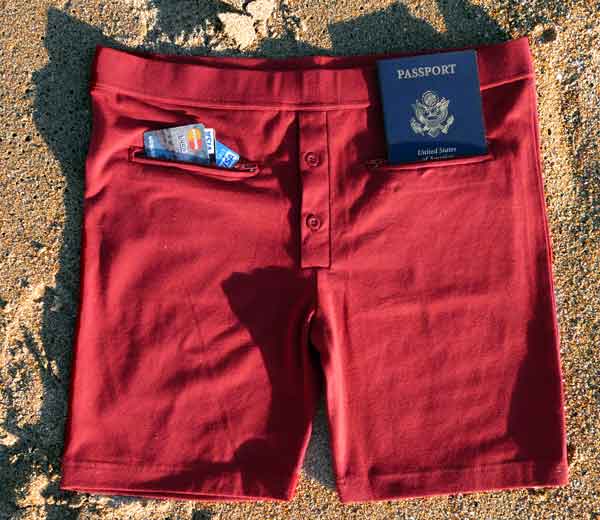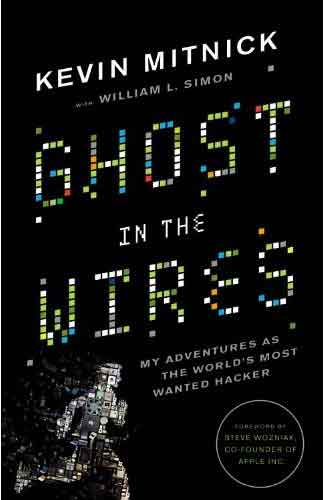Scottevest jacket road-tested and reviewed by Thiefhunters Bambi Vincent and Bob Arno. Bonus: Scottevest is a great carry-on solution for flights with limited carry-on.
Continue readingCliffhanger meal at Aescher restaurant in Swiss Alps
The Aescher Restaurant is a challenge to reach, but what an experience! A glorious hike and cable car journey to a magical destination. Watch the video
Continue readingTripadvisor’s tricky review algorithm
TripAdvisor rejected my review of a B&B in the south of Italy. I shouldn’t have cared, but I did. I had taken the time to advise other travelers about a property that fraudulently promises attributes it does not have or offer. My review of Residenza il Barone in Tropea, Italy, is now posted on this blog almost exactly as uploaded to TripAdvisor, with photos. It’s also posted in a popup here on Hotels.com, the platform on which I booked our stay.
Why won’t TripAdvisor post my review?
Yes, I do care. I want to know what is objectionable about my review. What invalidates it? The replies I have received from TripAdvisor are a baffling series of robot responses that have nothing to do with my review.
We cannot publish your contribution as it does not meet our review guidelines. Please only provide reviews based on substantial experiences you’ve had while traveling and be sure to include enough detail in your review that other travelers will find your advice helpful.
TripAdvisor, July 23, 2019
Wait. I stayed three nights in this place! I wrote substantial things about it! Before I realized I was communicating with AI (artificial intelligence; or artificial idiot), I wrote asking:
Why should Residenza il Barone be allowed to falsely advertise and book an accommodation on TripAdvisor? They claim, but do not have:
Thiefhunter to TripAdvisor, July 23, 2019
• A balcony.
• Air conditioning
• Toiletries.
Then, after another series of nonsensical emails about departments and forwarding and… just look at these, all in different emails:
- “Your request to TripAdvisor has been received…”
- “You replied to a TripAdvisor address that does not accept incoming e-mail…”
- “Please confirm that your received an email from TripAdvisor confirming you that you successfully submitted a review…”
- “We are unable to locate the review in question…
- “We are not exactly sure which review you are pertaining to…”
I finally got more emails that vaguely attempted actual reasons; however, they do not pertain to my situation:
- “We do not allow reviews containing second-hand information, rumors, or quotations from other sources. For this reason, we regret to inform you that your review cannot be published at this time…”
- “We do not post reviews that is not first hand experience…”
To select my hotel in Tropea, Italy, I researched on TripAdvisor. When I found Residenza il Barone, I clicked the View Deal link. I was transported to Hotels.com, which offered only an “apartment” and listed its attributes, including balcony, bidet, air conditioning, breakfast available, and free toiletries. Residenza il Barone is a B&B; it was not clear to me that I was being shown a property that is not, in fact, a B&B.
I booked the “apartment,” understanding that it was in a separate building. However, it did not have a balcony, functioning air conditioning, bidet, breakfast, or toiletries (not even a bar of soap).
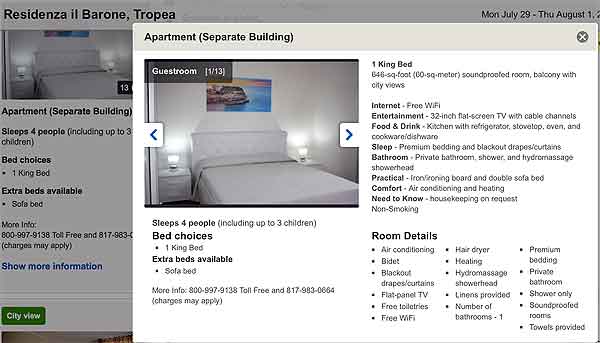
Whyyyyyyy should I care about this? The trip is over. We enjoyed Tropea, if not the accommodation. Yet, I continued to attempt contact with a responsible human at TripAdvisor. Finally, from TripAdvisor’s “content integrity department”:
We use an automated filtering system that pulls aside reviews that may require special attention or which are flagged as possibly violating our review guidelines. It appears that your review was flagged by this system because it doesn’t comply with our submission guidelines. As a result, I cannot publish your review — and because our process is proprietary to our business, unfortunately I can’t share any additional details about why your review was filtered.
TripAdvisor Content Integrity, August 1, 2019
TripAdvisor continued to shower me with emails containing useful and relevant (haha) reasons for the rejection of my review:
- “Your review does not meet the guidelines, with that being said, we cannot publish the review…”
- “In order to provide useful and relevant advice for travelers, we do not allow reviews containing second-hand information, rumors, or quotations from other sources…”
- “We do not allow reviews that do not detail a substantial personal experience. As your review does not include any first-hand experiences about the facilities or services of the establishment, we are unable to publish it at this time…”
Whaaaaat? In the end, TripAdvisor advised me that “Your case is being handled by our highly-specialized team…” and “I’m afraid I can’t share information about our investigation process or the automated filters which aid us”.
Needless to say, my frustration had built too much to drop this without learning what triggered the rejection. I tried a phone call. Even that resulted in irrelevant robotic replies. Perhaps I’ll get a call back from a supervisor. If so, I’ll update this report.
Finally, clarification!

Residenza il Barone’s apartment is above the restaurant umbrella, at top center, on the second and third floors.
An eleventh-hour phone call from a supervisor, an actual human one, shed some light. My review used the word apartment and I had put that word in quotation marks. That, believe it or not, was the whole problem.
Apparently, an accommodation called an “apartment” belongs in TripAdvisor’s “Vacation Rentals” section and is kicked out of the “Hotels” section. Obviously though, I want it attached to the hotel (or B&B) that sold me the apartment, in order to advise future travelers.
And, my use of quotation marks signified to the moderators (I say robots, they say humans) that my review includes hearsay.
The supervisor suggested that I resubmit my review simply describing it as a room. Hmmm, that’s tricky, considering that it is precisely the “apartment” that I mean to warn others about. I have tried. I submitted a review today without any quotation marks, and without the word “apartment” (except for one instance I missed!). We shall see if TripAdvisor accepts it. If so, I will link to it.
9/6/19 Update
I sanitized my review and submitted it four more times. (I had missed an instance of the word apartment in one, and some quotation marks in another. In my final submission, I took the content-integrity supervisor’s advice and moved a different paragraph to the top “to trick the filters.” This last one took several days longer than usual to be rejected but, sure enough, it was, for the same old reason:
We noticed that your review for Residenza il Barone may not be submitted to the correct listing on TripAdvisor. A review must relate directly to the business to which it is submitted.
I give up. Especially in light of today’s BBC article, TripAdvisor defends itself in fake reviews row. “…in the case of one hotel in Jordan, TripAdvisor subsequently removed 730 of its five-star reviews.” In other words, TripAdvisor let 730 fake reviews pass through its brilliant AI filters. What chance does my legitimate review have if TripAdvisor’s artificial intelligence determines that mine is fraudulent? “We have fraud detection tools that are far more sophisticated…” said a UK based TripAdvisor official. Clearly, TripAdvisor needs some human oversight with the ability to bypass its filters.

Residenza Il Barone in Tropea, Calabria, Italy. Watch out!
Don’t be fooled into booking the “apartment.”

Ahhh, Tropea! that’s what all the Italians said when they heard that beach town would be the last stop on our journey through the sole of Italy. So beautiful!

It sure is. So popular is Tropea that the B&B I wanted to stay in was fully booked six weeks before our visit. This is the story of a “sister property” switch, a mean step-sister that does not live up to her sterling siblings, and false claims made by the property owner. There’s also a TripAdvisor mystery, which I’ll save for another post.
Bottom line first: when you go to book a room at Residenza Il Barone in Tropea, don’t be fooled into booking the “apartment”, as I was. Let me tell you about the apartment. Its location is excellent, over a restaurant at Piazza Tre Fontane, a few blocks away from the advertised location. You unlock a heavy door and ascend 14 steep stairs. This brings you into a drab and charmless room with adequate furniture: a dining table and chairs, a sofa, and a sideboard. There’s a mini-kitchen, too, with fridge, sink, and stove.

Poor lighting: In all this space, there is ONE lightbulb. The lamp, hanging over the table, was barely enough for me to do my paperwork.

No Air conditioning: The apartment claims to have air conditioning. And yes, it had a portable unit on wheels standing in the room, with an extension cord nearby. (See my photo.) It was 85° (see photo), so we turned it on. Cool air came out the front; hot air came out the large exhaust hose, which was loose on the apartment floor—inside! We went to visit the owner, Roberto. Yes, he said, you have to open the door. So we stuck the wide exhaust hose out the door, leaving the tall door open a good six inches—through which came plenty of heat. In actuality: the apartment does NOT have functional air-conditioning.
No Balcony: The apartment claims to have a balcony. It does not. It has a four-inch ledge. (See photo.)
No toiletries: The apartment claims to have “free toiletries.” It does not. Not even a single bar of soap.

Climb up to bed: The bed is up a very narrow spiral staircase. (See photos.) There are 14 stairs, each 15” wide. If you are anything larger than slim, if you are elderly, if you have the slightest problem with stairs, you will not make it up. You cannot bring a suitcase upstairs. In fact, it’s difficult to carry anything up the tight stairs. Think about this if you usually get up during the night. The bathroom is downstairs.
Hot sleep: There is no air conditioning upstairs. (Not that there is any downstairs, either…)

No breakfast: This is not a B&B. There is no breakfast.
Residenza Il Barone gets consistently good reviews. Watch out if you are routed to this B&B’s apartment as an alternative. It’s not in the same league and is sold with false claims.
Even more strange is TripAdvisor’s response to my review. I’ll write about that next.


Pickpocket-proof clothes
Pickpocket-proof clothes. The pros discuss the pros. There aren’t too many cons, except for those we foil wearing pickpocket-proof clothes.
Continue readingThe Clever Travel Companion — pickpocket-proof underwear
A pickpocket-proof tank top that comfortable to wear. Pickpocket-proof underwear with zipper pockets. Boy shorts for women with zip pockets.
Continue readingGhost in the Wires
I thought Kevin Mitnick was a friend of mine—but that was before I read his forthcoming book, Ghost in the Wires. Kevin’s the consummate liar, it seems. He’ll say anything to get what he wants, going to extreme efforts to research, then set up support for elaborate cons. He’ll claim to be a cop, a utility employee, or your colleague from a remote office, if it serves his purpose. A faceless voice on the telephone, he’ll sweet-talk one minute, and command with authority the next. At least he used to do this, before spending five years in federal prison…
To become the boldfaced name in social engineering, Kevin honed a natural knack for people-reading from childhood. He was a telephone Zelig who rarely needed to get out of his sweats. He always found a plausible pretext for his capers and pursued them with outrageous chutzpah. Rarely would he fail to obtain the information he sought.
Can one retire a talent like that? I doubt it, but as I can’t think of what use Bob and I are to Kevin, I prefer to think that we really are his friends.
Ghost in the Wires: My Adventures as the World’s Most Wanted Hacker is Kevin’s third book, to be published in August 2011. I love that title. The book chronicles how Kevin, from an early age, tinkered with communication devices: ham radios, telephones, cellphones, computers, and the software that runs them all. Although he was obsessively compelled to dig deeper and deeper into the gizmo-code, he never tried to make or steal money from his exploits. He did it out of his own curiosity, to learn more, and to challenge himself to do what seemed impossible.
Sometimes, in his relentless pursuit of knowledge, he simply had to break into a company’s computer to get the software, the code, or the user names and passwords that he needed. In an electronic sense, that’s breaking and entering. And when he copied that proprietary information for his own use, well, that’s stealing.
Once he’d gained access to his target computer, he’d usually fiddle with its inner settings just enough to plant a “backdoor,” an easy way in for his next visit. He might read his target’s emails and even copy them, but he never destroyed the files.
Imagine an intruder who breaks into your house, sneaks around and looks into your secret hiding places, rifles your files, and picks through your drawers. Satisfied, he then backs out quietly leaving everything just as it was, sweeps up his footprints and, oh yeah—copies your house key on the way out.
I’ve heard Kevin call himself a “non-profit hacker.” Sure, he got himself free phone calls, but throughout his hacking career, he was always gainfully employed. With the information he had at his fingertips, he could easily have enjoyed a life of leisure from credit card fraud. He could have sold proprietary source code in the hackers’ underworld. But no; Kevin lacks a vital attribute. He has nerves of steel and gigantic balls, but he does not possess a criminal core. He was simply educating himself.
That is, until he got himself in trouble for snooping. Then he needed that information to protect himself, so he could make untraceable phone calls, so he could listen in to others. As the Feds closed in on him, he needed to know how much they knew about him, too.
Many times while reading Ghost in the Wires I wanted to smack Kevin. I wanted to shake him and say “you just got out of juvenile detention for doing just this—why are you doing it again?” He makes it clear that his hacking was his idea of fun and entertainment, to see if he could get to the next level. Like an addicted gamer.
It turns out, after all, that Kevin was busy educating himself. From “the world’s most wanted hacker” he has become one of the most wanted security experts in the world. He’s now considered the ultimate social engineer and an “ethical hacker,” one who’s challenge is to break into his clients’ systems, whether electronically or by social engineering. In other words, as Mitnick Security, he’s now paid to do what he loves, and he no longer has to look over his shoulder.
Social engineers are an ominous bugbear to security. A company (or you!) can have the tightest security system in place, but humans are its weakest link. For a hacker like Kevin, it’s easier to simply ask for the key to the front door than to steal it. He simply has to ask in the right way. Because social engineers are basically skillful actors playing a role, they’re an invisible threat and a daunting challenge for businesses.
I’m no hacker, that’s for sure, nor even a programmer. Yet, I found it fascinating to read exactly how Kevin finagled himself into systems and tweaked them to his advantage. Kevin wanted to include more of the nitty-gritty hackery in the book, but his co-author, Bill Simon, saved us readers from too much esoterica. I think they struck an excellent balance. I never felt bogged down by the technical bits.
In fact, some might worry that Ghost is a hackery cookbook, complete with lessons in how to get others to spill their secrets. I worried about this aspect with my own book, Travel Advisory: How to Avoid Thefts, Cons, and Street Scams.
Does an exhaustive explanation of theft techniques actually teach the thieves? Kevin and I obviously came to the same conclusion: no, there’s more to gain by putting all the details out there, the better to protect yourself.
I feel a little sorry for all the good people whose trust Kevin exploited. They bought into his ruses in a good-faith effort to be helpful. No doubt that he used them, and probably got many of them into big trouble. Well, in my line of work too, thiefhunting and training the public to avoid theft, a kernel of cynicism is not a bad seed to plant. Kevin’s patsies will think twice before giving out sensitive information.
Ghost is 400+ pages of tension, broken only by Kevin’s sentimental musings about his mother and grandmother, who are constant supportive figures in his life, and the heartbreaking side-story of his brother. It’s fast reading—a tribute to the clear writing and exciting story.
Yeah, yeah, you think I’m all positive because Kevin’s my friend. He gave me an unedited galley copy of the book (littered with typos), but didn’t ask me to write about it. If I hadn’t liked it, I wouldn’t have written a word.
Or maybe I would have. After all, Kevin might not be a real friend of mine…

